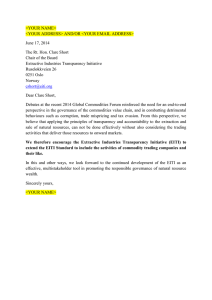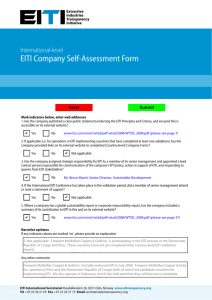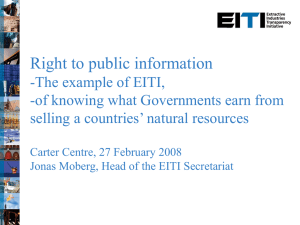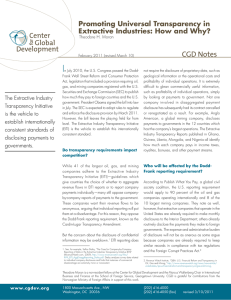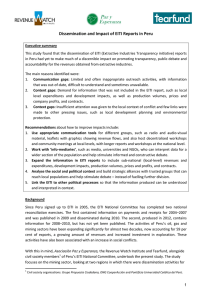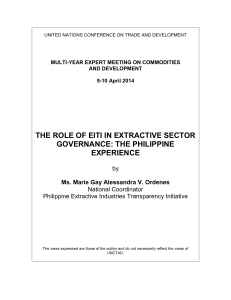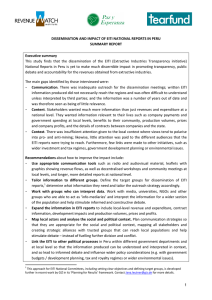EITI as a Tool for Reducing Corruption Dr. Liz David-Barrett by
advertisement
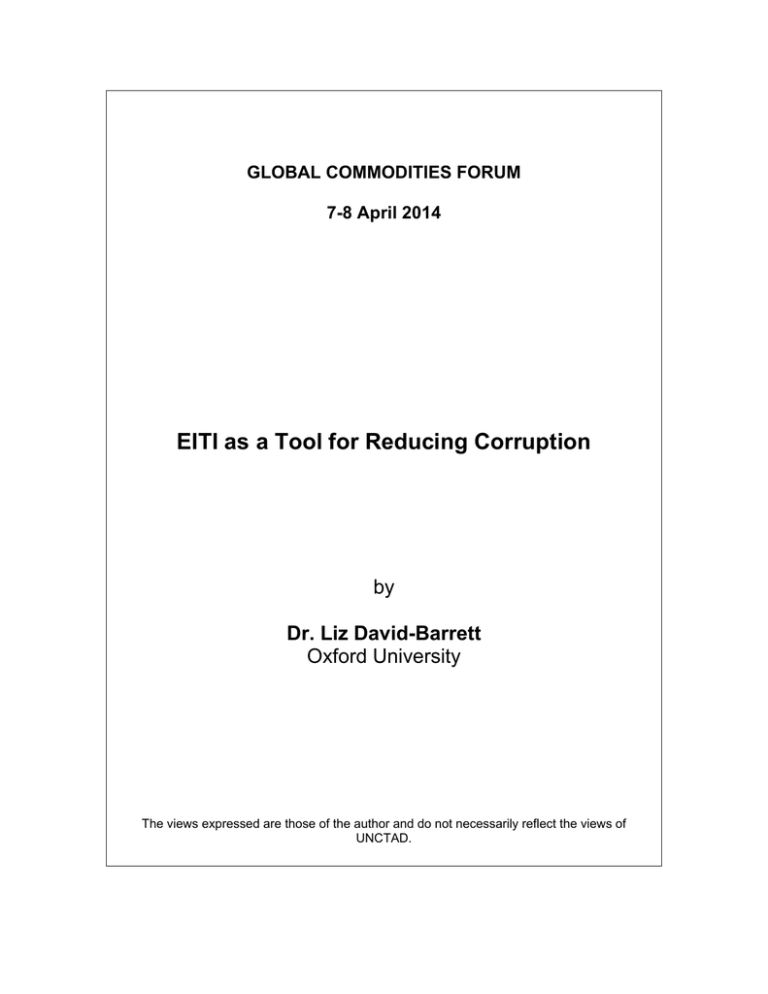
GLOBAL COMMODITIES FORUM 7-8 April 2014 EITI as a Tool for Reducing Corruption by Dr. Liz David-Barrett Oxford University The views expressed are those of the author and do not necessarily reflect the views of UNCTAD. EITI as a Tool for Reducing Corruption 8th April 2014 Dr Liz David-Barrett Oxford University Why care about corruption in the extractives sector? Problem: The Resource Curse Is corruption part of the explanation? Resource-rich countries tend to be highly corrupt The extractives sector is one of the most corrupt sectors Theory about when corruption occurs CORRUPTION = DISCRETION + MONOPOLY – ACCOUNTABILITY How does Transparency change the dynamics of transactions? GOVERNMENT taxes, fees, bribe? entrusted power licence to operate THE PUBLIC COMPANY EITI GOVERNMENT taxes, fees, bribe? licence to operate EITI: Governments make revenues earned from extraction transparent and require companies to ‘publish what they pay’ COMPANY How does Transparency change the dynamics of a corrupt transaction? GOVERNMENT: Weakens ability to control information Increases risk of being caught, which may act as deterrent COMPANY: Increases risk that bribe will be revealed, may deter offer THE PUBLIC: Can check whether procedures were followed correctly and seek answers if not Can spot patterns that might suggest undue influence Sub-sets of public (incl. other companies) can raise questions to challenge aspects of process or debate how resources should be distributed Does Transparency Reduce Corruption? Necessary conditions Availability of relevant kinds of data Active and expert intermediaries, able to utilise information Commitment on part of authorities to investigate suspicious activity Multi-stakeholder group is critical 2.5 YEARS MAX COMMIT 5 SIGN-UP REQUIREMENTS e.g., MultiStakeholder Group, Work Plan, Timetable EITI IMPLEMENTATION PROCESS CANDIDATE 15 CRITERIA e.g., Accounting Standards, Discrepancy Resolution Process, First Report COMPLIANT Does EITI implementation improve accountability (and curb corruption)? YES, because it: • Builds expertise among intermediaries, improving their ability to access and evaluate data • Institutionalises dialogue with civil society • The methodology has spillover effects, e.g., FOIAs, MSGs in other policy areas • Prompts donor support for accountability initiatives BUT… • • It reduces corruption more in countries with more active civil society, political and media freedom Has little leverage over highly corrupt highly resourced countries (where oil rents are high) EITI as a model for other sectors? Voluntary standards backed by international community Structured tripartite dialogue Incentives for all parties to participate COMPANIES GOVERNMENT CIVIL SOCIETY
